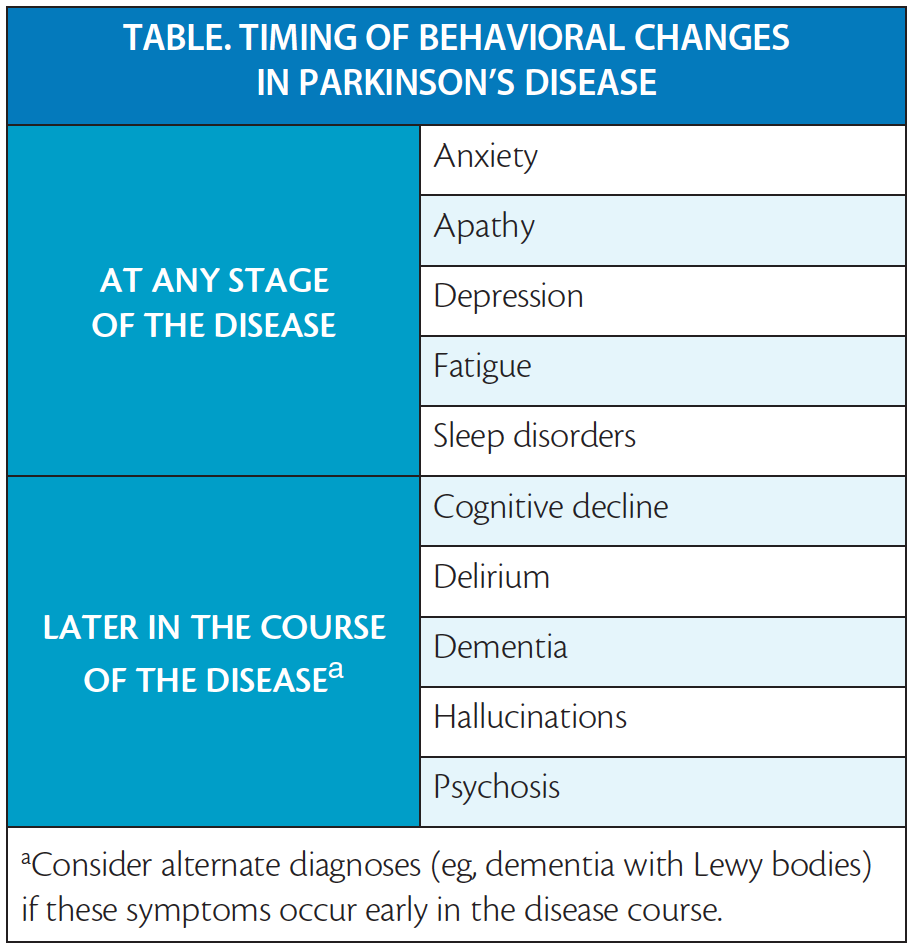The World Health Organization explains that death and disability due to Parkinson’s disease are increasing worldwide.
While medication and physical treatments are common in PD, therapy is equally vital to manage the disease’s emotional and psychological impacts. This blog post aims to explore the role of therapy in managing Parkinson’s disease and equip counselors with novel strategies.
What Is Parkinson’s Disease?
Parkinson’s disease is a chronic and progressive movement disorder, meaning that symptoms continue and worsen over time. Although genetics and environmental factors are thought to play a role in PD, its cause is unknown.
According to the American Association of Neurological Surgeons (ANNS), PD results from nerve cell degeneration in the movement-controlling part of the brain called the substantia nigra. An important chemical called dopamine is lost when these nerve cells die or become impaired.
Dopamine is a neurotransmitter that sends messages to the part of the brain that controls movement and coordination. The decrease in dopamine leads to the hallmark symptoms of Parkinson’s disease, including tremors, rigidity, bradykinesia (slowness of movement), and postural instability.
The Emotional and Psychological Impact of Parkinson’s Disease

The diagnosis of Parkinson’s disease can be devastating for individuals and their families. It often brings about significant emotional and psychological challenges, including anxiety, depression, and a sense of loss. Patients may struggle with the reality of a progressive illness, fear of disability, and changes in their roles and identities.
The physical symptoms, coupled with the emotional strain, can lead to social isolation, a reduced quality of life, and a diminished sense of well-being. This is where therapy plays a critical role.
The Role of Therapy in Managing Parkinson’s Disease
Therapy for Parkinson’s disease is multifaceted, addressing both the physical and psychological aspects of the condition.
Here, we’ll focus on the psychological and emotional support you can provide to help individuals with Parkinson’s disease and their families cope with their challenges.
Counseling and Psychotherapy
Counseling and psychotherapy enable individuals with Parkinson’s disease to manage the emotional and psychological impact of their condition.
Cognitive-behavioral therapy (CBT) is effective in addressing depression and anxiety, common comorbidities in PD patients. CBT helps individuals identify and challenge negative thought patterns and behaviors, promoting more positive ways of thinking and coping.
You can enhance your client’s quality of life by working with them to develop practical strategies for managing their symptoms and emotions
Support for Caregivers and Families
The impact of Parkinson’s disease extends beyond the individual to their caregivers and families. Providing support to caregivers is essential, as they experience high levels of stress, anxiety, and burnout.
Family therapy helps manage the dynamics and communication within the family unit, fostering a supportive environment for the patient and their loved ones. Educating families about the disease, its progression, and coping strategies can empower them to better support their loved ones while taking care of their own emotional needs.
Mindfulness and Stress Reduction Techniques
Mindfulness-based stress reduction (MBSR) and other mindfulness techniques can be highly effective in managing the stress and emotional turmoil associated with Parkinson’s disease.
They empower individuals to focus on the present moment, reducing feelings of anxiety and depression.
Techniques such as deep breathing, progressive muscle relaxation, and guided imagery can help patients manage stress and improve their emotional well-being. You can incorporate these techniques into your sessions, teaching clients how to use them in their daily lives.
Addressing Cognitive Changes
Cognitive changes are common in Parkinson’s disease, with some individuals experiencing difficulties with memory, attention, and executive function. Neuropsychological assessments can help identify specific cognitive deficits, allowing counselors to tailor their therapeutic approaches accordingly.
Cognitive rehabilitation therapy (CRT) revitalizes a patient’s cognitive functioning and develops compensatory strategies for managing daily tasks. Providing education and support to patients and their families about cognitive changes can also help reduce anxiety and improve coping.
Building a Support Network
Social support is crucial for individuals with Parkinson’s disease. Encouraging clients to build and maintain a strong support network can help alleviate feelings of isolation and improve their overall well-being.
Online and in-person support groups provide a platform for individuals to share their experiences, gain insights, and receive emotional support from others who understand their challenges. Counselors can help clients find appropriate support groups and encourage their participation.
Promoting Self-Efficacy and Resilience
Promoting self-efficacy and resilience is an important aspect of therapy for individuals with Parkinson’s disease. Helping clients set realistic goals, recognize their achievements, and develop problem-solving skills can fortify their sense of control and competence.
Clients can also improve their mood and overall quality of life by participating in activities they enjoy. By building resilience, individuals become more positive and develop better coping methods as they adapt to the conditions brought about by the disease.
Mastering Therapies for Depression and Anxiety
Parkinson’s disease poses a ton of challenges for practitioners since it’s associated with depression and anxiety. However, it’s possible to alleviate mental disorders through online CEU programs from Online CE Credits. The learning platform has in-depth certifications from specialists with decades of experience in treating anxiety and depression.
Dominate your practice with the courses below:
- Solution-Focused Therapy Skills for Depression & Other Mood Disorders
- Anxiety’s Kryptonite: Help Clients Calm With Solution-Focused Therapy
- Certificate in Anxiety & OCD Diagnosis & Treatment
- Diagnosis and Treatment of Anxiety Disorders
- EMDR for Anxiety: Basic EMDR Skills and Anxiety Modifications
- Managing Anxiety for Clients with Memory Impairment
- Worry, Panic, & Phobia: Evidence-Based Approaches to Alleviate Anxiety
Want to explore more insights into continuing education? Take a look at ethics CEUs.
Physical and Occupational Therapy
Physical and occupational therapies are integral components of Parkinson’s disease management. Physical therapy focuses on improving mobility, balance, and strength, while occupational therapy helps patients maintain independence in their daily activities.
For example, physical therapy exercises can include elements of mindfulness and relaxation, reducing stress and promoting mental well-being. Occupational therapy can cover strategies to simplify daily tasks, minimize frustration, and increase the patient’s sense of autonomy.
As a result, you can collaborate with physical and occupational therapists to create a holistic treatment plan to deal with the disease’s physical and psychological aspects.
The Importance of Early Intervention
Early intervention is key to managing Parkinson’s disease effectively. Counselors should encourage patients and their families to seek help as soon as symptoms arise. Early diagnosis and treatment can slow the progression of the disease and improve the quality of life.
Educational sessions about Parkinson’s disease can benefit patients, families, and caregivers. Understanding the disease, its symptoms, and available treatment options enables individuals to make informed decisions and take an active role in their care.
You can also organize workshops or informational sessions to disseminate this vital information.
Continuing Education for Counselors
Because Parkinson’s disease is progressive in nature and complex, counselors must engage in ongoing education and training. The latest research, treatment options, and therapeutic techniques allow you to provide the best possible care for your clients.
Online continuing education courses are convenient for you as they let you stay updated on the latest developments. They cover a range of topics, including the psychological impact of Parkinson’s disease, effective therapeutic interventions, and strategies for supporting caregivers and families.
Consider Various Therapies for Treating Parkinson’s Disease
The multifaceted nature of the disease requires a comprehensive approach that addresses physical and emotional health. Psychological support, family counseling, cognitive rehabilitation, and collaboration with other healthcare professionals can enhance the well-being of people living with Parkinson’s disease.
Gain Ground with Online CE Credits
Wondering how you can hone your skills in treating mental disorders associated with PD at affordable rates? Online CE Credits makes learning and earning CE credits a breeze. Our premium video CE courses bring experienced mental health trainers to your living room, either on-demand or via live events/webinars! NOW INCLUDES access to Certificate Program enrollment and live consultation events! Advance your career in just 5 days with our flexible CE courses.
